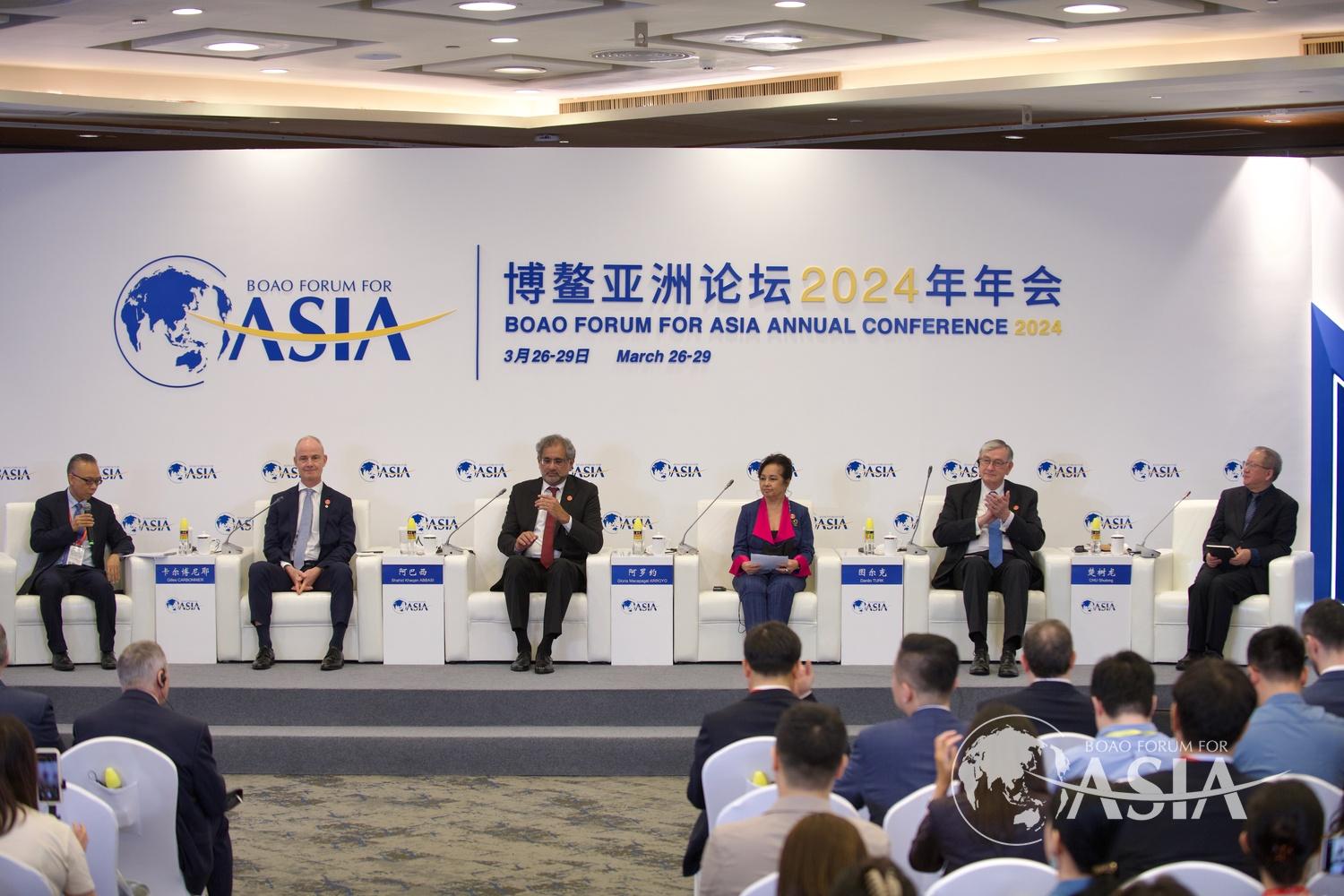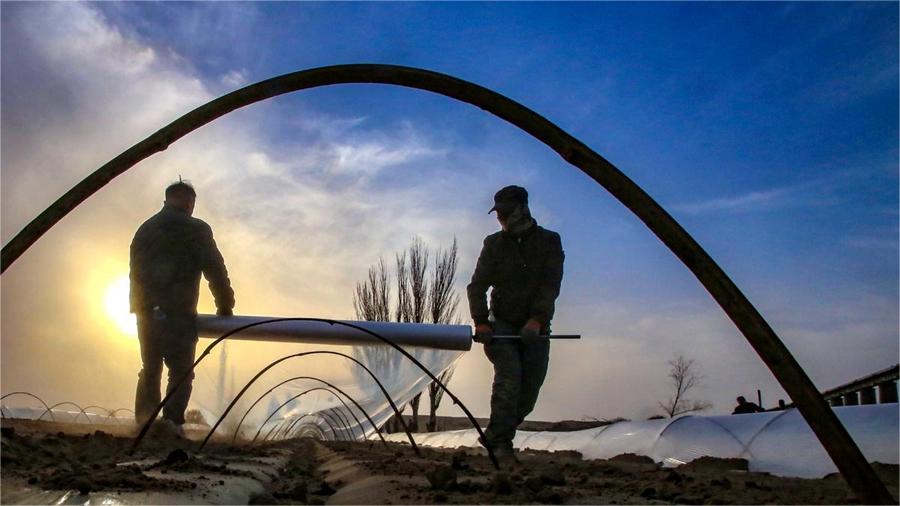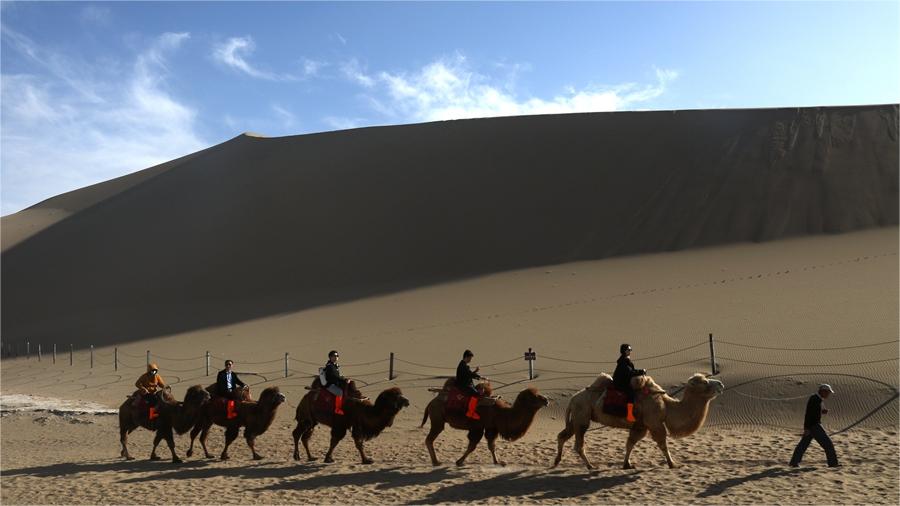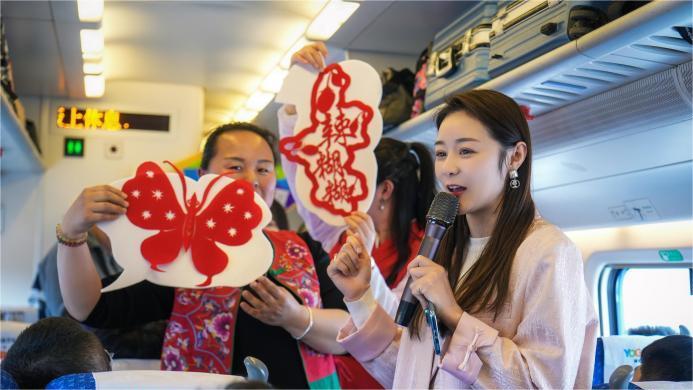Int'l politicians and experts urge for solidarity, inclusiveness at Boao Forum
With the theme "Asia and the World: Common Challenges, Shared Responsibilities," the Boao Forum for Asia (BFA) Annual Conference 2024 is being held from March 26 to 29 in south China's Hainan Province.
The forum hosted a panel discussion on the global geopolitical outlook on March 27. Given the turbulent, intertwined state of the world, with conflicts exacerbating tensions, politicians, scholars, and international organization representatives were invited to analyze the challenges facing global society. The panel emphasized the need to build a lasting, peaceful environment.

International politicians, representatives, and scholars attend a panel discussion on the global geopolitical outlook during the Boao Forum for Asia Annual Conference 2024 in Boao, south China's Hainan Province, March 27, 2024. (Photo Credit: Boao Forum for Asia)
Shahid Abbasi, former prime minister of Pakistan, emphasized the global impact of ongoing conflicts across several continents. He noted their ramifications on both politics and the supply chain of goods to developing countries. He added that human society had endured war for decades, underscoring the importance of achieving peace and prosperity worldwide.
"Asian countries, in particular, are a crucial force for realizing world peace and stability," Abbasi told People's Daily Online. "The BFA provides a platform for Asian countries to jointly create their own voice, and Asian countries must have their own voice in not only economic issues but also global geopolitical issues."
Danilo Turk, former president of Slovenia, also emphasized his concerns about the current international situation, describing it as "aggravating" and "unpredictable." He also noted that the outcome of the U.S. Presidential Election might add to this unpredictability.
"In terms of future world development, a harmful trend in today's Western world is that sanctions have been treated as a panacea. Instead of solving the initial issue, a series of negative results has been triggered," said Turk.
"And that's why the BFA created a perfect platform to integrate and foster all the positive forces to resolve those issues. Though most of the issues cannot be resolved right away, it is always a positive sign to start discussing," Turk added.
Gilles Carbonnier, vice president of the International Committee of the Red Cross (ICRC), voiced concerns about the use of digital technology in armed conflicts, while acknowledging the transformative impact of digitalization on the world.
"As a humanitarian organization, we noticed that digital techniques could have magnifying effects. Though digital techniques can help us reach out to people who are in need, they can also incite the spread of hostile speech. Therefore, control over artificial intelligence weapons and the implementation of the Geneva Convention should be specified," Carbonnier added.
Chu Shulong, an expert on international strategy, pointed out that the prevailing trend in certain countries to instigate a "new Cold War" and engage in strategic competition against China persists. However, such competition is unlikely to yield positive income.
"Competition between countries is inevitable, whether in terms of science, marketing, and investment. Yet, when geopolitical issues become intertwined with competition, the situation tends to take a negative turn and does not help resolve issues," said Chu.
The participants reached a consensus that the effects of any regional conflict should be studied and analyzed from a global perspective rather than focusing solely on the region itself. Inclusive policies should be formulated when addressing these issues. The ultimate goal of all countries is to create a peaceful and prosperous world that benefits everyone.
Photos
Related Stories
- Inside look at the Boao Forum for Asia
- Boao Forum reports: Asia to continue driving global economy and clean energy, led by China
- Panel discussions held at Boao Forum for Asia in south China's Hainan
- Boao Forum for Asia holds first press conference
- Things to know about Boao Forum for Asia Annual Conference 2024
Copyright © 2024 People's Daily Online. All Rights Reserved.









